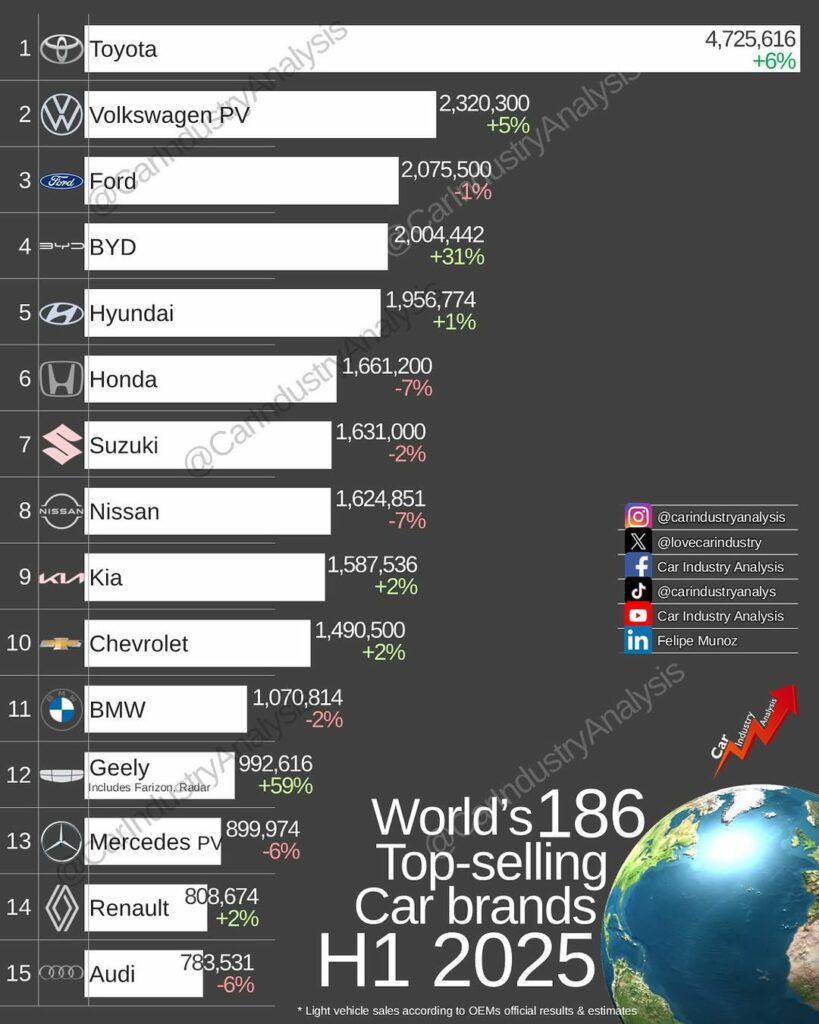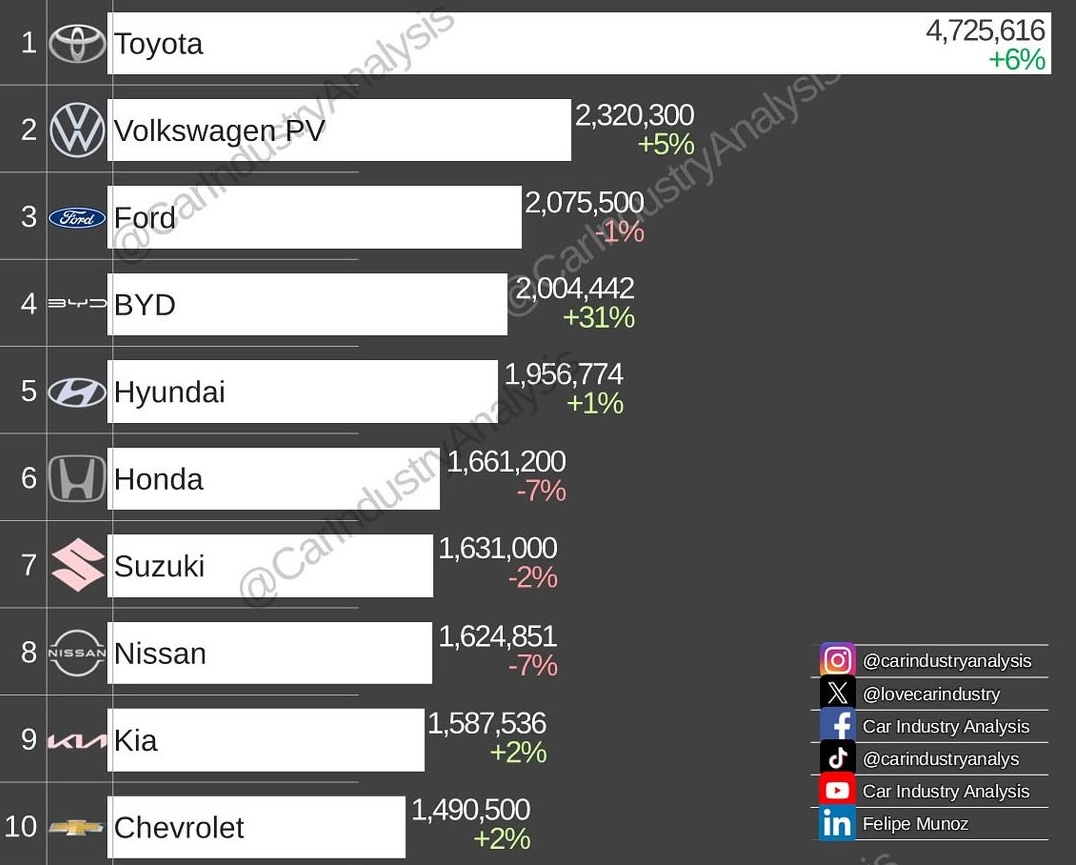The global automotive market is evolving faster than ever, and in the first half of 2025, BYD officially surpassed Hyundai in worldwide vehicle sales — marking a historic turning point for the industry. According to data published by automakers and estimates compiled by Car Industry Analysis, global sales reached 45.2 million new vehicles between January and June 2025, a 3.8% increase compared to the same period in 2024.
Toyota Still Leads, But BYD Overtakes Hyundai
Toyota remains the undisputed global leader with 4.73 million vehicles sold, meaning one out of every ten new cars carries the Toyota badge. The brand continues to strengthen its dominance despite rising competition from Chinese automakers.
Volkswagen and Ford maintain their respective second and third positions. However, the standout story of 2025 is BYD’s rapid ascent, achieving a remarkable fourth place worldwide — ahead of Hyundai, Honda, Nissan, Suzuki, and Kia.
This marks the first time in history that BYD has overtaken Hyundai, highlighting the rise of Chinese automakers as major global contenders.
BYD’s Rise and Hyundai’s Challenge
In the first six months of 2025, BYD sold just over 2 million vehicles, a 31% increase compared to the previous year. These numbers do not include BYD’s sub-brands such as Denza, Fang Cheng Bao, and Yangwang.
BYD’s surge is primarily driven by strong export performance, offsetting the slowdown in China’s domestic market caused by fierce price wars. The company’s expanding presence in Southeast Asia (Thailand and Malaysia), Latin America (Brazil and Mexico), and Europe (United Kingdom and Italy) is reshaping competitive dynamics in markets where Hyundai has traditionally been strong.

With this momentum, BYD could surpass Ford by the end of 2025, solidifying its place among the top three global automakers.
Hyundai Under Pressure in Key Markets
For decades, Hyundai has been one of the world’s most successful mainstream automakers, building a strong reputation for reliability, design, and affordability. However, its global sales in early 2025 were not enough to defend its fourth-place position, as BYD’s international growth propelled it ahead.
Despite maintaining solid performance with models such as the Tucson, Elantra, and IONIQ series, Hyundai’s electric vehicle lineup is now facing mounting pressure from BYD’s aggressive pricing, expanding production capacity, and faster rollout of new models.
The fact that Hyundai has been overtaken by BYD underscores a dramatic shift in the industry — where Chinese EV manufacturers are no longer just challengers but direct competitors in global markets once dominated by established brands.
Geely, Honda, and Nissan: Other Key Movements
BYD’s success isn’t isolated. Geely also achieved impressive growth, with sales rising 59% to nearly one million units, thanks to the success of its Galaxy sub-brand and the best-selling Xingyuan in China.
In contrast, Japanese manufacturers like Nissan and Honda experienced setbacks, with global sales falling 7.3% and 7.4%, respectively. Both continue to struggle in the Chinese market, where their electrified offerings lag behind competitors. Luxury automakers Mercedes-Benz and Audi also reported declines, largely due to weaker demand in China.





